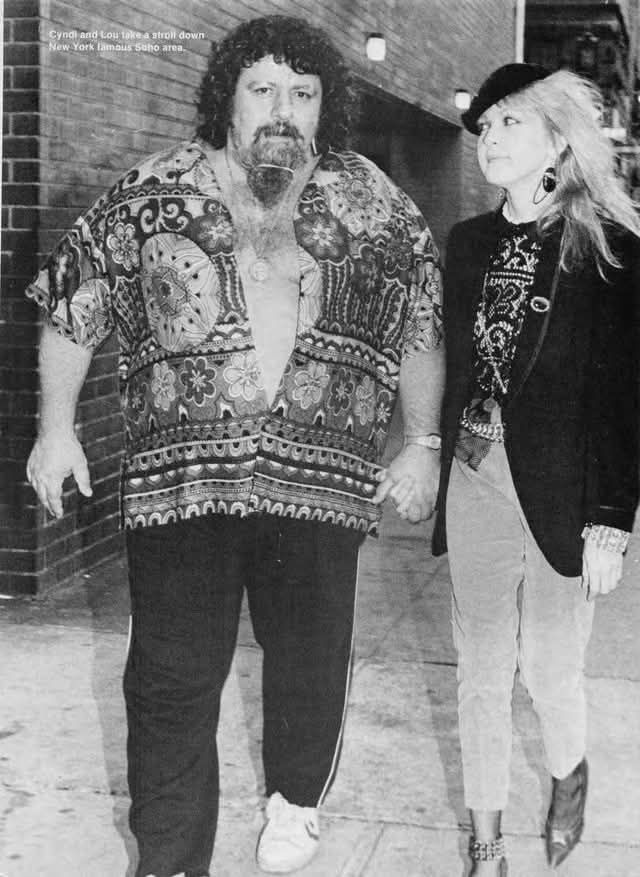In 1978, Cyndi Lauper stood outside a New York nightclub, dressed in a velvet jacket, heavy boots, and bright, wild hair. Her band, Blue Angel, was supposed to perform, but the club owner took one look at them and refused. “We don’t want circus acts,” he said before slamming the door.
Heartbroken, Lauper sat on the cold sidewalk and cried. That rejection hurt more than just losing a gig—it was another reminder that people thought she was too different. But in that moment, she made a quiet promise to herself: *One day, I won’t need anyone’s approval to be myself.
Before fame, Lauper worked as a waitress and grew up in Queens with a love for music. Her childhood wasn’t easy—her father left when she was young, and her mother worked hard to support the family. Music became Lauper’s escape. She admired singers like Judy Garland and Patti LaBelle but never wanted to copy them. She wanted to be unique.
In 1979, she formed Blue Angel, a band that mixed rock and punk in a way that confused record labels but excited fans. Their album failed, and the band broke up. Lauper was left with no money, working as a waitress again, and even faced vocal cord problems that could have ended her singing career. But she refused to give up.
By 1983, she recorded her solo album, She’s So Unusual. With her bold style and unforgettable voice, she stood out in the pop world. Her hit Girls Just Want to Have Fun became an anthem, but behind the fun was the same woman who had been rejected years before. She didn’t change for the industry—she changed the industry by being herself.
Years later, she returned to the street where that nightclub once stood. It was gone, replaced by a fancy store. Laughing, she said, “I didn’t need their stage. I built my own.”
Cyndi Lauper’s story is about resilience. That night in 1978 didn’t break her—it fueled her. She proved that being different wasn’t a weakness. It was her strength.
Credit goes to respective owner✍️
